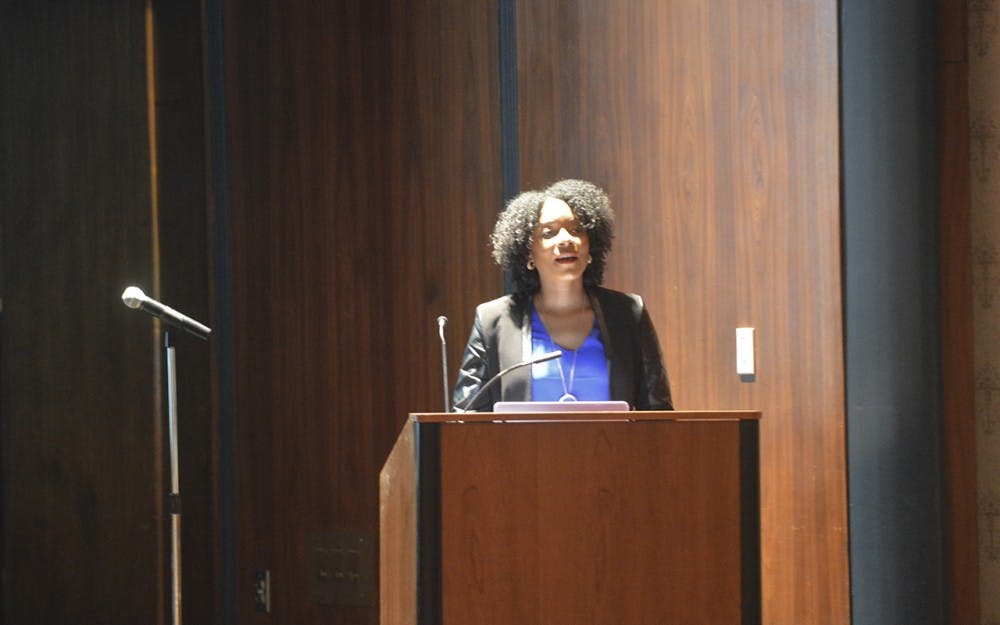Zerlina Maxwell has been a notable figure for many reasons. She worked as director of progressive media for Hillary Clinton during the most recent presidential election, and is also a political activist raising issues in race, domestic violence, sexual assault and gender inequality.
On Tuesday evening Maxwell visited the Indiana Memorial Union to talk about these issues.
“We want to make sure to reach all students,” said Sarah Cramer, sexual assault prevention education specialist at IU. “This is an effort to be mindful of those who might otherwise be left out.”
As a result, it is no accident the event took place during Martin Luther King Jr. week. The talk was intentionally planned with the African American Coalition to join professors, faculty and staff in an effort to prevent sexual assault, Cramer said.
“I love that people on campus want to address this,” said Rory James, director of the office of student diversity and inclusion. “This way we can get a feel for what sexual assault prevention is like.”
James introduced Maxwell to the hushed chatter of a room of students, parents, professors and staff in the Whittenberger Auditorium.
“I try to make my talks entertaining and a little bit lighter because the topic is so heavy,” Maxwell said as she began her talk. “My goal is to help you to identify rape culture in everyday things so you can call it out and prevent its perpetuation.”
Maxwell prefaced her speech by sharing how she chooses to frame her sexual assault conversations. She said people need to talk about consent.
She said everyone knows rape is wrong, but many do not know what consent is.
“Some believe consent is a blurred line, like the song. They think you do not have to ask for consent — you can just tell,” Maxwell said. “I do not frame my conversations with men as the perpetrators because women are not the only ones affected.”
One in 33 men experience sexual assault in their lifetimes, Maxwell said, citing a statistic from a report by the United Nations in her presentation.
Survey results from the Association of American Universities show one in four women experience sexual assault during college. Bloomington has many resources, including Middle Way House, IU Sexual Assault Crisis Services and Culture of Care, for victims.
Though sexual assault prevention frequently discusses methods for women to avoid rape and sexual assault, Maxwell said her goal is to prevent rape before it happens.
Throughout her presentation Maxwell cited instances where social media, news reporters and advertisements perpetuated rape culture. She discussed ways to avoid blaming victims by rephrasing the way sexual assault is discussed and asked listeners to be empathetic.
“Rather than saying ‘Are you sure? It seemed like you were asking for it — you were wearing a short skirt,’ offer to connect them with support services,” Maxwell said. “Even if you don’t believe them, it might be a bigger situation than you can deal with. Just try to be empathetic.”
Cramer said she hoped students would walk away with thoughtful questions about sexual assault. She said it’s important people pay attention because it shows people care and everyone, especially victims, needs to know people care and there are people who can help.
“No one can prevent their own rape,” said Maxwell. “The perpetrator is the one who chose to do it. There is nothing the victim can do to prevent being raped.”
Maxwell’s primary themes during her speech were to believe survivors, to support survivors, to be a vocal ally, to be an active bystander and always to ask for consent.
“Default to believing. Default to empathy,” Maxwell said.






